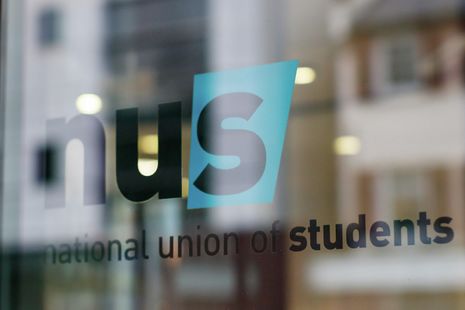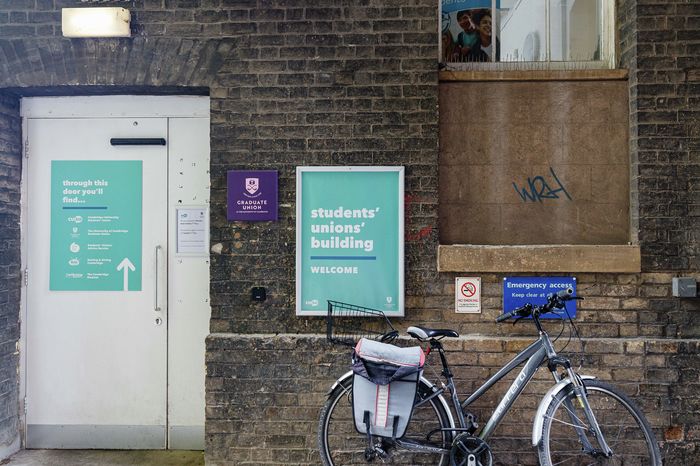Cambridge SU announces NUS delegate election results
Six out of seven NUS delegates have been announced amid fiercely contested race and unenthusiastic turnout

After a highly competitive election, six of seven National Union of Students (NUS) delegates have been elected: Elia Chitwa, Grayson Allen, Alicia Smith, Chloe Newbold, Esme Cavendish and Yuri Hirayama. Re-Open Nominations (RON) was elected as a seventh candidate, meaning that a by-election will be held to decide the remaining delegate.
The delegates are set to represent Cambridge at the 2021 NUS conference in April, alongside delegates from around 600 other university student unions.
Chitwa was the most popular candidate in the first stage, with 203 votes, followed by Cavendish’s 153 and Allen’s 144.
“I feel very enthused because, somewhat unexpectedly, my mandate resonated very well with the voters,” Allen told Varsity.
Both of the Cambridge Students’ Union (SU) sabbatical officers running were elected as NUS delegates: Chloe Newbold, Women’s Officer, and Esme Cavendish, the Undergraduate Access, Education & Participation Officer.
The NUS Conference brings together thousands of students from across the country to debate and make policy and elect NUS leadership. It normally occurs over the course of three days.
Cambridge students elect seven delegates per year to go to the NUS National Conference. The delegates work with the NUS to lobby the government and support students’ unions and campaigns. Delegates are also able to submit policies to the conference, vote on motions, speak for or against motions and vote on policies that are debated.
This year the elections were highly competitive. Twenty-two candidates ran for the seven delegate positions compared to just five in November 2019 and eleven in 2017 and 2018. Allen plans to “spend time talking with fellow delegates to gauge which issues seem the most important to each of them”, he explained to Varsity.
He continued: “I'd love to collect real stories from students that have been affected personally by lack of mental health resources so that I can share these authentic stories at the conference in March. The university needs to know that the time is nigh for real change in mental health coverage!”
Smith, another newly elected delegate, is a “PhD student researching the role of disrupted memory processes in mental health problems” and, like Allen, places an emphasis on “welfare” and “mental health”.
She has said that, “[a]s an NUS delegate, my goal is to devote my time to listening to what you require to maximise your success during university and campaign for the changes that you want to see.”
Chitwa ran on a platform of “tackling inequalities in education”, “looking at the causes of welfare issues and not just the symptoms”, and “transparency and engagement”, citing their involvement in the SU’s LGBT+, BME, and Disabled Students Campaigns alongside their work with The Mix, YoungMinds and the NHS Youth Forum.
Newbold emphasised “safety”, “welfare” and “liberation” in their manifesto, while Cavendish stated that she would advocate for “wellbeing and education provision” and “improving access and participation efforts” whilst combating “the failures of a marketised education system which values profit over the experiences of students”.
Finally, in her statement, Hirayama underlined the importance of “representing our University to cement policies creating a sustainable, zero-tolerant environment that allows any student [...] to flourish in their student life”. Errors in the voting system occurred after polls were set to close at 7pm rather than 5pm, as was originally stated in formal documentation for the election. The Democracy Committee of the SU ruled today (20/11) that votes cast after the original deadline of 5pm, of which there were 17, would be discounted.
This year’s turnout was relatively low, with just 1,025 valid votes cast. By contrast, 1,705 students voted in 2019, compared to 1,020 in 2018 and 1,696 in 2017. Allen, however, does not “think this is too big of an issue”.
“With more time and more resources, I imagine that the message could have been spread further and inspired a lot more votes,” he told Varsity..
Last year’s NUS delegate election results caused controversy after only one of five candidates succeeded in achieving more votes than ‘RON’, meaning that none of the other four candidates could initially be selected.
 Features / Should I stay or should I go? Cambridge students and alumni reflect on how their memories stay with them15 December 2025
Features / Should I stay or should I go? Cambridge students and alumni reflect on how their memories stay with them15 December 2025 News / SU reluctantly registers controversial women’s soc18 December 2025
News / SU reluctantly registers controversial women’s soc18 December 2025 News / Dons warn PM about Vet School closure16 December 2025
News / Dons warn PM about Vet School closure16 December 2025 News / Cambridge study finds students learn better with notes than AI13 December 2025
News / Cambridge study finds students learn better with notes than AI13 December 2025 Comment / The magic of an eight-week term15 December 2025
Comment / The magic of an eight-week term15 December 2025









